A life shaped by sanctions / Dawn to dark, danger lurks
USA Today
July 13, 1994, Wednesday, FINAL EDITION
BYLINE: Tom Squitieri
SECTION: NEWS; Pg. 4A
LENGTH: 783 words
DATELINE: LA BOULE, Haiti
In the time after the dogs finally stop barking but before the roosters start to crow, Haiti begins to awaken to another day.
This is the only quiet time in Haiti, when the sun is still far from rising and when, every day, the march of the peasants begins in the hills far off from the markets of Port-au-Prince.
“When I hear them walking by the house, I smile. It reminds me when I was a little girl and . . . things were good,” says Genevieve Vourakis as the peasants crunch the gravel outside her mother’s home at 4 a.m.
But these days, what is on the minds of the peasants and others is different from when Vourakis was a child.
This is the time that, if a U.S. invasion does come, it could begin. But invasion or not, the day-in, day-out lives of Haiti’s 7 million people remain shaped by sanctions imposed from the outside and a tightening vise of a ruling military clique within.
Each day, before the sun starts burning hot out of the sky:
— In the hospitals, those still on the job collect bodies of shriveled children who died in the night.
— In the massive garbage piles along Port-au-Prince harbor, the hungry push each other away from the newest droppings of scraps as they scratch for a meal.
— On the border with the Dominican Republic, animals laden with contraband gasoline are urged down narrow paths to trucks waiting to ferry the fuel to the city.
— At the Rex Theater, once a grand movie palace, hundreds seeking political asylum already wait in line beneath posters of U.S. films. Only 60 a day get interviewed.
— And these days, as a desperate Haiti slips into despondency, destitution and despotism, this quiet time is when gangs linked to Haiti’s military rulers deposit bodies, remains of their nightly marauding.
The sun just begins to peek over Black Mountain when the peasants’ feet carry them past the old rum plant, now a closed tourist spot.
If the invasion comes, this is where peasants will first see U.S. troops fanning out through the city below.
This morning it’s more likely they will see dead and victimized countrymen.
Mid-morning comes. It’s still just another day for Yves Samuel, 24, who puts up his artwork for sale.
“No one buys. But what else can I do? This is my life, this is all I can do every day,” he says.
Business is much better for Denise Dedescare, 20, one of the many selling gas in the “Kuwait City” black market.
“Come here, cheri,” Dedescare says. “Best gas, best gas, no water.”
In downtown Port-au-Prince, what’s left of the dwindling middle class arrives at the restaurant Paradise des Amis. Owner Michele Aubourg wonders how long they will keep coming.
“It is habit,” Aubourg says. “They come even if they have no (money) to eat. Their day would be too different.”
By afternoon, the heat has slowed everything down. Only the traffic is still active. Horns blaring, vehicles four abreast on narrow roads pass at full throttle around curves.
Occasionally, in the afternoon, the storm comes.
In a second, thunder shatters apart the sluggish humidity. The rains begin. The downpour wets the hillsides and the dusty streets. It brings a temporary reprieve from much that is miserable.
After the rain, foot traffic resumes.
That is how much of Haiti spends the day: walking. To jobs. To school classes. To the market. To get food or medical care. And then home again.
By night, the walk of those still employed is almost over.
Sometimes they see lights in the homes of coup bosses who still get power or those of the elite, whose lights come from generators.
More often, there are just the flickers of burning fires on the streets. They silhouette packs of roving dogs and young men firing up “a juicy,” a marijuana cigarette laced with crack and cinnamon, and washing it down with rum.
Now is danger time: being out at night means one could be a victim. Even the elite pack guns in their four-wheel-drive vehicles.
It happens everywhere. Just after hearing the last concert of the neo-political group “Boukman Experiance” a couple were parked in their car.
Out of the darkness came a pickup truck, lights on high beams to blind those parked. It turned in front of the car to prevent quick escape. Guns were waved and orders barked before the couple were permitted to leave.
As the elite disperse from another night of partying, the peasants’ march has already started in reverse.
“Deye Mon, Gen Mon,” the peasants mumble in Creole, literally “Behind every mountain there is another mountain.” But the expression more commonly means “if it is not one thing, it is another.”
That is the reality of Haiti today. Another exhausting day may finally be over. But few in Haiti can sleep soundly.










